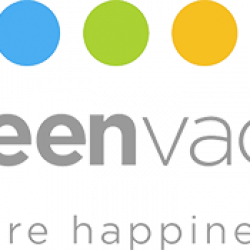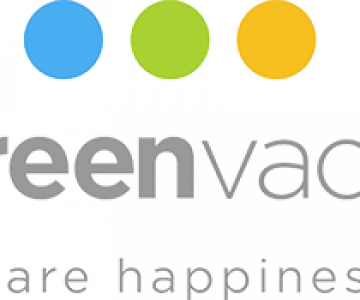how to get out of westgate timeshare

A home mortgage is a type of loan that is secured by realty. When you get a home mortgage, your loan provider takes a lien versus your home, suggesting that they can take the residential or commercial property if you default on your loan. Mortgages are the most typical type of loan utilized to purchase genuine estateespecially domestic home.

As long as the loan amount is less than the value of your residential or commercial property, your lending institution's risk is low. Even if you default, they can foreclose and get their cash back. A home mortgage is a lot like other loans: a lender provides a debtor a particular amount of cash for a set quantity of time, and it's repaid with interest.
This implies that the loan is secured by the property, so the loan provider gets a lien versus it and can foreclose if you stop working to make your payments. Every home mortgage includes particular terms that you ought to understand: This is the quantity of cash you obtain from your lender. Normally, the loan amount is about 75% to 95% of the purchase rate of your residential or commercial property, depending upon the type of loan you use.
The most typical mortgage terms are 15 or thirty years. This is the process by which you pay off your home loan gradually and includes both primary and interest payments. In a lot of cases, loans are completely amortized, suggesting the loan will be fully paid off by the end of the term.
The rate of interest is the expense you pay to borrow cash. For home mortgages, rates are normally in between 3% and 8%, with the best rates offered for mortgage to borrowers with a credit report of at least 740. Mortgage points are the fees you pay upfront in exchange for lowering the interest rate on your loan.
Not all mortgages charge points, so it's essential to check your loan terms. The variety of payments that you make annually (12 is normal) impacts the size of your regular monthly home loan payment. When a lender approves you for a mortgage, the mortgage is set up to be paid off over a set amount of time.
Sometimes, loan providers may charge prepayment charges for repaying a loan early, but such charges are unusual for the majority of home mortgage. When you make your regular monthly home loan payment, each one looks like a single payment made to a single recipient. But home mortgage payments https://www.instructables.com/member/ithrisbr2w/ in fact are gotten into several different parts.
Just how much of each payment is for principal or interest is based on a loan's amortization. This is an estimation that is based on the amount you borrow, the regard to your loan, the balance at the end of the loan and your rate of interest. Home mortgage principal is another term for the quantity of cash you obtained.
Oftentimes, these charges are included to your loan quantity and paid off over time. When referring to your mortgage payment, the primary quantity of your mortgage payment is the part that goes against your impressive balance. If you borrow $200,000 on a 30-year term to purchase a home, your monthly principal and interest payments might have to do with $950.
Your total monthly payment will likely be greater, as you'll also have to pay taxes and insurance coverage. The rates of interest on a home mortgage is the quantity you're charged for the cash you borrowed. Part of every payment that you make goes towards interest that accumulates in between payments. While interest expenditure belongs to the expense constructed into a mortgage, this part of your payment is generally tax-deductible, unlike the principal portion.
These may consist of: If you elect to make more than your scheduled payment monthly, this quantity will be charged at the very same time as your regular payment and go directly towards your loan balance. Depending upon your lending institution and the type of loan you utilize, your loan provider may need you to pay a portion of your real estate taxes on a monthly basis.
Like genuine estate taxes, this will depend upon the loan provider you use. Any amount collected to cover property owners insurance will be escrowed until premiums are due. If your loan amount goes beyond 80% of your home's worth on many conventional loans, you might have to pay PMI, orprivate mortgage insurance coverage, every month.
While your payment might include any or all of these things, your payment will not normally consist of any costs for a homeowners association, apartment association or other association that your home belongs to. You'll be needed to make a different payment if you belong to any home association. Just how much mortgage you can manage is generally based on your debt-to-income (DTI) ratio.
To determine your maximum mortgage payment, take your net income every month (don't subtract expenses for things like groceries). Next, subtract month-to-month debt payments, including auto and trainee loan payments. Then, divide the outcome by 3. That amount is approximately just how much you can pay for in regular monthly mortgage payments. There are a number of different kinds of home mortgages you can use based on the kind of home you're buying, how much you're obtaining, your credit history and just how much you can afford for a deposit.
Some of the most typical types of home mortgages include: With a fixed-rate home mortgage, the rates of interest is the same for the whole term of the home loan. The mortgage rate you can receive will be based on your credit, your deposit, your loan term and your lending institution. A variable-rate mortgage (ARM) is a loan that has a rates of interest that alters after the very first numerous years of the loanusually 5, seven or 10 years.
Rates can either increase or reduce based upon a range of aspects. With an ARM, rates are based on an underlying variable, like the prime rate. While borrowers can theoretically see their payments decrease when rates adjust, this is really unusual. Regularly, ARMs are utilized by individuals who do not prepare to hold a home long term or strategy to re-finance at a set rate before their rates change.
The federal government provides direct-issue loans through federal government firms like the Federal Housing Administration, United States Department of Farming or the Department of Veterans Affairs. These loans are normally designed for low-income homeowners or those who can't manage large deposits. Insured loans are another kind of government-backed home loan. These consist of not simply programs administered by agencies like the FHA and USDA, however also those that are released by banks and Hop over to this website other loan providers and after that sold to Fannie Mae or Freddie Mac.






Ingen kommentarer endnu